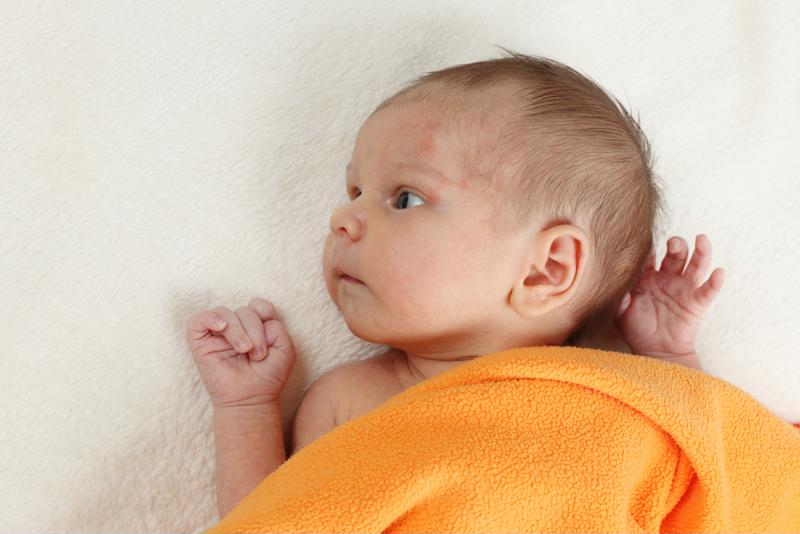The first few weeks of having a newborn are full of emotions. From excitement and pride to overwhelming love, there’s a lot going on and likely little sleep. So, when you discover a rash one day while changing your little one’s diaper, what do you do? Don’t panic. Newborn skin is delicate and can become irritated easily. Here are some common newborn rashes you may encounter:
Diaper rash
One of the first skin problems you’ll likely encounter is diaper rash. This redness and itching can occur when a baby’s skin is wet for too long. Wearing a diaper that has been soiled can irritate the skin and cause diaper rash. Thankfully this doesn’t require a trip to the doctor. Just make sure to frequently check your baby’s diaper and change it when you notice it is wet. Use diaper cream to soothe the rash in the meantime and always fully dry your newborn after a bath before putting him or her in a diaper.
Baby acne
You may be startled to discover that your brand new baby has acne like a teenager! These tiny bumps can form on the face or anywhere on the body but are most common on the forehead and cheeks of a newborn. Wash the child’s skin with mild soap and water and monitor the zits. If they persist, you may need to see a doctor.
 Heat rash can occur anywhere on the body, even the face.
Heat rash can occur anywhere on the body, even the face.Heat rash
If you’ve ever worked out on a hot day you’ve probably experienced heat rash yourself. This skin irritation occurs when a newborn gets too hot. Humid summer weather is a major factor, but babies can also get heat rash at other times of the year due to wearing too much clothing. To prevent heat rash, keep your little one in the shade and head to some air conditioning on really warm days. He or she could wear SPF clothing. Dress your baby in layers in the colder months so you can easily take off a sweater or add one depending on the temperature. Heat rash should go away on its own within a few days, but contact a physician if you are concerned.
Chicken pox
If you’ve never been around chicken pox, you may not be familiar with the smattering of maroon polka dots that might show up on your child’s body. This condition comes with itchy welts that present as simple bumps or fluid-filled blisters. Some kids get only a handful of pox while others’ entire bodies are covered. It is more common for children over age one to get chicken pox, but it is possible for newborns to be infected. See your pediatrician, who will provide tips on how to minimize the itching and keep your baby comfortable. Know that if you haven’t had chicken pox yet you are also susceptible. If you can, keep anyone who has not had the condition away from the baby until the pox have passed.
If you are ever concerned about your newborn’s skin, reach out to a doctor or consult a pharmacist before addressing an irritation with over-the-counter medicine.
